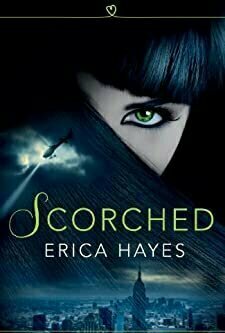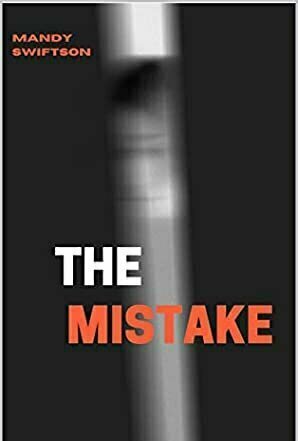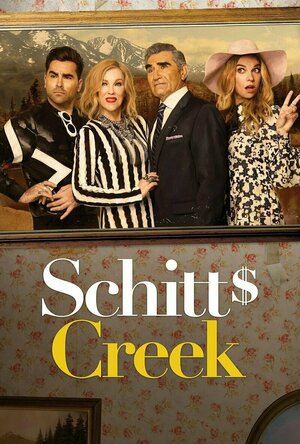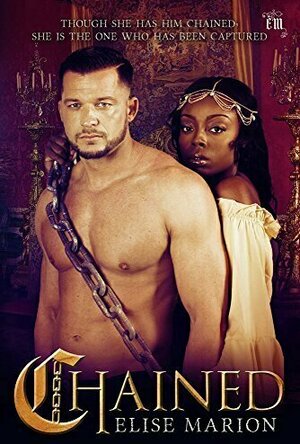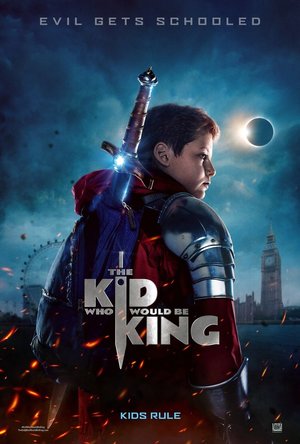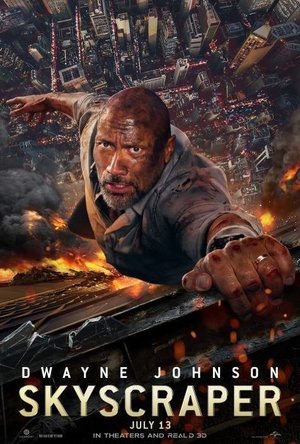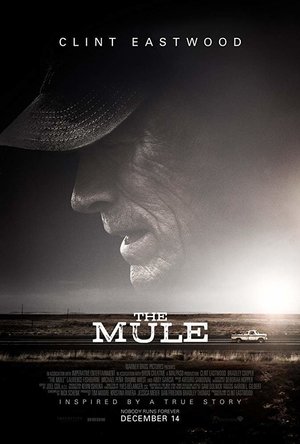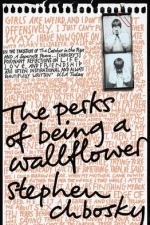Search
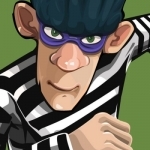
Cops & Robbers
Games and Entertainment
App
“It would be criminal to pass up the chance to post bail for this arresting blend of platforming...
Leanne Crabtree (480 KP) rated Scorched (Sapphire City, #1) in Books
Jan 6, 2021
I received this ARC via Netgalley in exchange for an honest review.
The cover drew me in. Isn’t it a thing of beauty?
When I requested this I assumed it would be more paranormal than it was. In fact it was more fantasy than anything. People who go around using their powers–known as the Augmented–to stop evil, dressed up in disguise. Superheroes?
I was quickly drawn into the story within the first chapter when we see Verity struggle to remember who she is and that she isn’t a bad person after being tortured by her arch nemesis’ minions in a mental asylum and her escape from there. She runs to a safe house and bumps into her brother who tells her she’s been MIA for nine months.
Can I just stop there for a minute and mention the Fortune siblings’ names? The eldest is Equity, then Adonis, then there is Verity and baby brother Chance. I love their names! If they don’t scream Superhero, I don’t know what does :D
Anyway, back to the story. On Verity’s return to her family, things don’t go smoothly and she realises things don’t add up. Is there a conspiracy in the works?
Throughout the story we see flashbacks of the night that Verity was captured and it is all very intriguing. At just over half way through I had my suspicions of what they would end up showing and I was right in my assumption about what some of it would show. I’m not going into detail as it would totally ruin in for you.
We meet a lot of other Augmented people: Iceclaw, Weasel, Glimmer. Some are good and some not so much. I liked the description of each and how they earned their names. They were thought out and I could picture them easily.
I grew to really like Glimmer, he seemed like a really nice guy. Verity, on the other hand, I couldn’t decide about. She seemed to like pushing people away and was full of self-loathing a lot of the time, unable to justify some of the things she’d done.
To start with I didn’t mind the lack of romance, as I was so caught up in the drama surrounding Verity, but the more I read the book the more I missed it. There was a bit; some kisses exchanged and nice words but nothing like the amount I like to read in books and that’s reflected in my rating.
It was full of action and intrigue. I liked the superhero vs. bad guys aspect. If you like the sound of it, then I’d suggest you go grab a copy.
The cover drew me in. Isn’t it a thing of beauty?
When I requested this I assumed it would be more paranormal than it was. In fact it was more fantasy than anything. People who go around using their powers–known as the Augmented–to stop evil, dressed up in disguise. Superheroes?
I was quickly drawn into the story within the first chapter when we see Verity struggle to remember who she is and that she isn’t a bad person after being tortured by her arch nemesis’ minions in a mental asylum and her escape from there. She runs to a safe house and bumps into her brother who tells her she’s been MIA for nine months.
Can I just stop there for a minute and mention the Fortune siblings’ names? The eldest is Equity, then Adonis, then there is Verity and baby brother Chance. I love their names! If they don’t scream Superhero, I don’t know what does :D
Anyway, back to the story. On Verity’s return to her family, things don’t go smoothly and she realises things don’t add up. Is there a conspiracy in the works?
Throughout the story we see flashbacks of the night that Verity was captured and it is all very intriguing. At just over half way through I had my suspicions of what they would end up showing and I was right in my assumption about what some of it would show. I’m not going into detail as it would totally ruin in for you.
We meet a lot of other Augmented people: Iceclaw, Weasel, Glimmer. Some are good and some not so much. I liked the description of each and how they earned their names. They were thought out and I could picture them easily.
I grew to really like Glimmer, he seemed like a really nice guy. Verity, on the other hand, I couldn’t decide about. She seemed to like pushing people away and was full of self-loathing a lot of the time, unable to justify some of the things she’d done.
To start with I didn’t mind the lack of romance, as I was so caught up in the drama surrounding Verity, but the more I read the book the more I missed it. There was a bit; some kisses exchanged and nice words but nothing like the amount I like to read in books and that’s reflected in my rating.
It was full of action and intrigue. I liked the superhero vs. bad guys aspect. If you like the sound of it, then I’d suggest you go grab a copy.
Charlotte (184 KP) rated The Mistake in Books
Mar 20, 2021
Although this is a review it will also serve as a letter to Mandy and any other person who has been in this or similar position.
Also this is trigger central with physical and emotional abuse, rape, bereavement, suicide attempts and self harm. If ANY of this affects you please seek help.
Let's start at the beginning.....yes maybe it was a mistake BUT remember you were being MANIPULATED. At the point you made that first 'mistake' he had already done the ground work, he'd slowly started controlling you and your environment......you didn't have a real choice.
He was a master of manipulation and deception, he already knew what words and phrases to use to get compliance........he had experience of it, he relished it. The guy had plausibility and knew how to create a good story....a believable one, well, multiple stories. The story to fool authorities, the story to fool family and friends, the story that became the script of your life.....this is NOT your fault! Whether due to generally being a trusting person or (for Mandy) being vulnerable from a previous bad relationship, you were taken advantage of.
Hope is a make or break feeling, meeting number 4 full of hope for things to get better was bittersweet. I don't have children but can only imagine what emotional trauma was caused from the very first moment of fear for the children. I take my hat off to all the survivors who steeled themselves and did what was necessary to protect their babies. Mandy did what was needed, not for her but her babies.....that's selflessness right there.
MB passing, for goodness sake! It's fluffing heartbreaking. Not going to lie I cried, for MB, for someone that deserved happiness but yet again was dealt a crap hand in life.
Totally unimpressed with flakey bake, I won't say anything else as I'll just swear a lot.
I've actually met Mandy a few times. She came across as outspoken, independent and strong in person, as well as fun (She's serious about the changing hair colours).
Having read this I have no doubt of the strength of this amazing woman. Followed for years by many demons yet still able to stand up and carry on, able to put into words, write a book, about things that most people wouldn't be capable of imagining let alone have touch their lives. A true inspiration.
I know how depression can creep up on you, stalk you, cloak itself so self doubt sets in......I also know how hard it is to ask for help but please ask, it's a lifesaver.
A story of freedom, survival, heartbreak, despair, hope and love as well as so much more.
This is a tissues and chocolate read from start to finish.
Also this is trigger central with physical and emotional abuse, rape, bereavement, suicide attempts and self harm. If ANY of this affects you please seek help.
Let's start at the beginning.....yes maybe it was a mistake BUT remember you were being MANIPULATED. At the point you made that first 'mistake' he had already done the ground work, he'd slowly started controlling you and your environment......you didn't have a real choice.
He was a master of manipulation and deception, he already knew what words and phrases to use to get compliance........he had experience of it, he relished it. The guy had plausibility and knew how to create a good story....a believable one, well, multiple stories. The story to fool authorities, the story to fool family and friends, the story that became the script of your life.....this is NOT your fault! Whether due to generally being a trusting person or (for Mandy) being vulnerable from a previous bad relationship, you were taken advantage of.
Hope is a make or break feeling, meeting number 4 full of hope for things to get better was bittersweet. I don't have children but can only imagine what emotional trauma was caused from the very first moment of fear for the children. I take my hat off to all the survivors who steeled themselves and did what was necessary to protect their babies. Mandy did what was needed, not for her but her babies.....that's selflessness right there.
MB passing, for goodness sake! It's fluffing heartbreaking. Not going to lie I cried, for MB, for someone that deserved happiness but yet again was dealt a crap hand in life.
Totally unimpressed with flakey bake, I won't say anything else as I'll just swear a lot.
I've actually met Mandy a few times. She came across as outspoken, independent and strong in person, as well as fun (She's serious about the changing hair colours).
Having read this I have no doubt of the strength of this amazing woman. Followed for years by many demons yet still able to stand up and carry on, able to put into words, write a book, about things that most people wouldn't be capable of imagining let alone have touch their lives. A true inspiration.
I know how depression can creep up on you, stalk you, cloak itself so self doubt sets in......I also know how hard it is to ask for help but please ask, it's a lifesaver.
A story of freedom, survival, heartbreak, despair, hope and love as well as so much more.
This is a tissues and chocolate read from start to finish.
Kirk Bage (1775 KP) rated Schitt's Creek in TV
Jan 22, 2021
This show was a little off my radar until it went ahead and won 9 Emmys earlier this year. I made a point of adding it to my watchlist, but remained largely unconvinced that it was going to be for me. Not based on anything solid, I just had a feeling.
One season in and I have to admit I find it very easy to watch (often in the background to doing something else) but am still a little on the fence. I can go an entire episode without raising a smile, but there have also been several moments that have had me rolling off my chair. My new instinct about it is that I am gonna need a lot more than the first season under my belt before I develop a true relationship with it. Maybe that was also the thinking of the Emmys, who mostly ignored it for 5 years and then threw everything at in retrospect once they realised it was ending and how fond they had become of it.
Eugene Levy and Maureen O’Hara, as the disfunctuonal parents of two grown up brats forced to slum it in a bumsville town once the family business goes bust, demonstrate terrific comic understanding and timing after years of practice in cringe comedy movies such as Best In Show. The fly on the wall style is not quite The Office, or Parks and Rec, but closest to Arrested Development – which I also struggled with at first, until the joke sunk in.
O’Hara especially, always teetering on the edge of wasted is a joy to watch; just naturally amusing and worth this kind of attention after a long and distinguished career. The kids also have their moments, the pan-sexual man-child David, played by Dan Levy, and the shallow vacuum that is Alexis, played by Annie Murphy, are deliberately annoying at first, but do become strangely endearing over time, a sign of great writing. Levy snr. is more the straight guy in the main, wallowing in pathos and his own ineffectual weaknesses as a father and husband, but also has some great moments here and there.
At this point I can’t honestly say if I will continue to the end, I’m just not that attached to it to face 5 more seasons for sure, but I may dip in from time to time. I do think it is worth a bigger audience than it already has stateside, I’m just not convinced a British / European audience really need it at this point in time, and if it has a time it is probably now or never, as its reference points are very of the moment, 2015-2020, before 2020 became something else entirely.
One season in and I have to admit I find it very easy to watch (often in the background to doing something else) but am still a little on the fence. I can go an entire episode without raising a smile, but there have also been several moments that have had me rolling off my chair. My new instinct about it is that I am gonna need a lot more than the first season under my belt before I develop a true relationship with it. Maybe that was also the thinking of the Emmys, who mostly ignored it for 5 years and then threw everything at in retrospect once they realised it was ending and how fond they had become of it.
Eugene Levy and Maureen O’Hara, as the disfunctuonal parents of two grown up brats forced to slum it in a bumsville town once the family business goes bust, demonstrate terrific comic understanding and timing after years of practice in cringe comedy movies such as Best In Show. The fly on the wall style is not quite The Office, or Parks and Rec, but closest to Arrested Development – which I also struggled with at first, until the joke sunk in.
O’Hara especially, always teetering on the edge of wasted is a joy to watch; just naturally amusing and worth this kind of attention after a long and distinguished career. The kids also have their moments, the pan-sexual man-child David, played by Dan Levy, and the shallow vacuum that is Alexis, played by Annie Murphy, are deliberately annoying at first, but do become strangely endearing over time, a sign of great writing. Levy snr. is more the straight guy in the main, wallowing in pathos and his own ineffectual weaknesses as a father and husband, but also has some great moments here and there.
At this point I can’t honestly say if I will continue to the end, I’m just not that attached to it to face 5 more seasons for sure, but I may dip in from time to time. I do think it is worth a bigger audience than it already has stateside, I’m just not convinced a British / European audience really need it at this point in time, and if it has a time it is probably now or never, as its reference points are very of the moment, 2015-2020, before 2020 became something else entirely.

Quidd: Stickers, Cards & 3D
Entertainment and Lifestyle
App
Collect, trade and show off officially licensed, limited edition stickers, trading cards and 3D...
Kara Skinner (332 KP) rated Chained in Books
Sep 10, 2019
As acting high lord of the house of Toustain, it’s Lady Gwendolyn’s job to manage affairs of Dinasdale, and that includes managing her new unruly prisoner, Caden Maignart. Unfortunately it looks like the only way she’ll be able to manage him is to have him chained up in her bedchamber.
After thirty years of peace, tensions are mounting between Daleria and Dinasdale again. After receiving reports of Dalerians massacring a Dinasdale village and Gwen’s brothers vanishing after being attacked, Gwen won’t take any chances with the Dalerian intruders found on Dinasdalian land. But she quickly realizes just throwing them into the dungeon won’t work, not when one of them is willing to stir up as much trouble as he possibly can to be freed. Chaining him up in her bedchamber keeps him secure, but it causes a whole new set of problems. Like how she can’t hide her thoughts and feelings from him. Not to mention the growing attraction she feels towards him, despite him being the enemy and her being engaged to another.
I will say this: Elise Marion can world-build. Like damn! Not only did she bring two completely different cultures to life, but she also wrote intricate histories for both of them. And it is definitely amazing. I love both Dinasdale and Daleria equally even though I think I’d rather live in Daleria. It’s all woods and mountains and women can become knights instead of just marrying for status. And honestly, I like red meat, not fish, which is the main food in Dinasdale. Yeah. Marion can world-build. These feel like real regions instead of fictional ones.
Unfortunately, the world-building choked the story a little bit at the beginning. In the prologue, when the three kings met, I was having trouble just trying to remember who belonged to which country, let alone keeping the reason for their conflict straight. I reread entire passages three times or so before I gave up on matching the names to the countries and points of contentions. Luckily as the story goes on, I could figure it out better.
Another thing that was frustrating was how much this plot relied on slow communication. I mean, if this world had email then not nearly as many people would have been killed. I’m reading the second book now, and that is still the main plot device, which makes me impatient for the characters to get caught up to speed on what’s happening. But hey, it works, right? The dramatic irony was killing me.
Mostly, I really love this story. I mean as soon as I finished the first one I bought the second, which is very rare for me. But I love it a lot. In addition to the seriously realistic world-building, there is also a really great plot full of political corruption and mystery. Even though I don’t think Rowan’s character is at all realistic, I like the story. There’s a lot going on at once. My summary up top doesn’t really do the plot of the book justice, honestly. It’s very hard to explain how intricate the plot really is, so I highly recommend you read it.
And yes, the love story between Caden and Gwen is fantastic. Caden is a really decent guy, even to Gwen despite the fact that he’s chained to her bedroom wall. Despite being the high lord heir for Daleria he’s very just and noble, which is way more than what can be said for King Rowan or Prince Gawain. I mean, I just get angry when I think about those two. And Gwen is a perfect match for him. She’s as headstrong and clever as you can get, not to mention beautiful (and can I just say that I love that she’s not caucasian? Too often romances like these are very monocolored unless it’s really relevant to the plot. The different races is only mentioned as an identifying trait between Dalerian and Dinasdale, but not a point of contention between them. It’s incredibly refreshing).
She is definitely wasted as Gawain’s fiancee. She holds her own really well and unlike other “strong” female heroines I see sometimes in books like these, she’s actually really smart and fierce instead of being just sassy. I mean, she killed three men in the first scene. She rocks. Her family makes me angry, though. How can they expect her to just be married off to Gawain? Her mother is delusional and selfish, so I understand why she wants her daughter to act all ladylike, but her brothers should know better and so should her uncle! It’s really frustrating to see how they want to coddle her and get her out of the way all the time.
Gwen and Caden are fantastic together. I love the chemistry between them and how sweet Caden is to Gwen. The gods know she needs it after her rough handling from Gawain. One thing I didn’t like, however, is how Caden was reluctant to be with Gwen because of her engagement to Gawain. Yeah, I admire the need for loyalty, but when Gwen didn’t want to marry Gawain in the first place, Gawain tried to rape her, and he probably caused the rift between Daleria and Dinasdale, the value of an engagement should probably be meaningless. It’s also frustrating that he kept saying that she belonged to someone else. Like her family, he sees her a little bit like a possession, which was really annoying. I know that probably has nothing to do with her sex. He would probably say the same thing about a guy engaged. But that didn’t stop me from disliking him a little bit.
After thirty years of peace, tensions are mounting between Daleria and Dinasdale again. After receiving reports of Dalerians massacring a Dinasdale village and Gwen’s brothers vanishing after being attacked, Gwen won’t take any chances with the Dalerian intruders found on Dinasdalian land. But she quickly realizes just throwing them into the dungeon won’t work, not when one of them is willing to stir up as much trouble as he possibly can to be freed. Chaining him up in her bedchamber keeps him secure, but it causes a whole new set of problems. Like how she can’t hide her thoughts and feelings from him. Not to mention the growing attraction she feels towards him, despite him being the enemy and her being engaged to another.
I will say this: Elise Marion can world-build. Like damn! Not only did she bring two completely different cultures to life, but she also wrote intricate histories for both of them. And it is definitely amazing. I love both Dinasdale and Daleria equally even though I think I’d rather live in Daleria. It’s all woods and mountains and women can become knights instead of just marrying for status. And honestly, I like red meat, not fish, which is the main food in Dinasdale. Yeah. Marion can world-build. These feel like real regions instead of fictional ones.
Unfortunately, the world-building choked the story a little bit at the beginning. In the prologue, when the three kings met, I was having trouble just trying to remember who belonged to which country, let alone keeping the reason for their conflict straight. I reread entire passages three times or so before I gave up on matching the names to the countries and points of contentions. Luckily as the story goes on, I could figure it out better.
Another thing that was frustrating was how much this plot relied on slow communication. I mean, if this world had email then not nearly as many people would have been killed. I’m reading the second book now, and that is still the main plot device, which makes me impatient for the characters to get caught up to speed on what’s happening. But hey, it works, right? The dramatic irony was killing me.
Mostly, I really love this story. I mean as soon as I finished the first one I bought the second, which is very rare for me. But I love it a lot. In addition to the seriously realistic world-building, there is also a really great plot full of political corruption and mystery. Even though I don’t think Rowan’s character is at all realistic, I like the story. There’s a lot going on at once. My summary up top doesn’t really do the plot of the book justice, honestly. It’s very hard to explain how intricate the plot really is, so I highly recommend you read it.
And yes, the love story between Caden and Gwen is fantastic. Caden is a really decent guy, even to Gwen despite the fact that he’s chained to her bedroom wall. Despite being the high lord heir for Daleria he’s very just and noble, which is way more than what can be said for King Rowan or Prince Gawain. I mean, I just get angry when I think about those two. And Gwen is a perfect match for him. She’s as headstrong and clever as you can get, not to mention beautiful (and can I just say that I love that she’s not caucasian? Too often romances like these are very monocolored unless it’s really relevant to the plot. The different races is only mentioned as an identifying trait between Dalerian and Dinasdale, but not a point of contention between them. It’s incredibly refreshing).
She is definitely wasted as Gawain’s fiancee. She holds her own really well and unlike other “strong” female heroines I see sometimes in books like these, she’s actually really smart and fierce instead of being just sassy. I mean, she killed three men in the first scene. She rocks. Her family makes me angry, though. How can they expect her to just be married off to Gawain? Her mother is delusional and selfish, so I understand why she wants her daughter to act all ladylike, but her brothers should know better and so should her uncle! It’s really frustrating to see how they want to coddle her and get her out of the way all the time.
Gwen and Caden are fantastic together. I love the chemistry between them and how sweet Caden is to Gwen. The gods know she needs it after her rough handling from Gawain. One thing I didn’t like, however, is how Caden was reluctant to be with Gwen because of her engagement to Gawain. Yeah, I admire the need for loyalty, but when Gwen didn’t want to marry Gawain in the first place, Gawain tried to rape her, and he probably caused the rift between Daleria and Dinasdale, the value of an engagement should probably be meaningless. It’s also frustrating that he kept saying that she belonged to someone else. Like her family, he sees her a little bit like a possession, which was really annoying. I know that probably has nothing to do with her sex. He would probably say the same thing about a guy engaged. But that didn’t stop me from disliking him a little bit.
Lee (2222 KP) rated The Kid Who Would Be King (2019) in Movies
Feb 18, 2019
We've had plenty of spins on the legend of King Arthur over the years. Probably the most enjoyable for me was BBC show 'Merlin', which ran for 5 seasons between 2008 and 2012, focusing on the early life of the famous sorcerer and King Arthur. Probably the worst take on it all was Guy Ritchie's god awful 'Legend Of The Sword' back in 2017. Joe Cornish, writer/director of the brilliant 2011 movie 'Attack The Block', follows that movie with a fresh spin of his own in 'The Kid Who Would Be King'.
For those of us who are unfamiliar with the legend of Arthur, or who had it's memory tarnished by Mr Guy Ritchie, it's recapped for us here in a nice little animated sequence right at the start of the movie. It tells how the evil Morgana was banished to the underworld, vowing to return once more when the world is again divided and at its weakest.
We then join Alex (played by Louis Serkis, son of Andy Serkis), a 12 year old schoolboy living with his mother. He's having some trouble with bullies at school, made worse by his attempts to stand up to them as they terrorise his friend Bedders. One night, while fleeing from bullies Lance and Kay, he stumbles into a building site where he discovers a sword set in stone. He manages to pull it free and takes it home in his backpack, where he and Bedders determine that the sword is in fact the legendary Excalibur.
The next day a mysterious new boy joins them at school. Turns out, he is in fact Merlin, taking the form of a younger boy. He informs Alex and Bedders that they must form a team of knights in order to prepare for the imminent return of Morgana and her army of dead soldiers. They have just 4 days, with her arrival taking place during an upcoming solar eclipse. If they cannot stop her, then she will enslave the Earths inhabitants.
Alex believes that his father is key to all of this, and that he is in fact descended from Arthur, so he decides to go on a quest to Tintagel, the last place that he saw his father. Alex leaves a note for his mum - "Gone on quest to save Britain, don’t worry!” and begins 'knighting' Bedders, and eventually bullies Lance and Kay, as only those that have been knighted are able to see and fight the dead soldiers that come at night.
Their journey takes them via coach, through a portal at Stone Henge, and on a trek across the English countryside where they stop to allow Merlin time to provide them with the sword training they need in order to stand any chance of defeating Morgana. Merlin regularly changes his form, switching between young boy, an owl and his true elderly self (played by Patrick Stewart). In the form of a boy, Merlin is a little bit wacky, performing his magic with a series of clicking hand movements, something which became very annoying for me after the first few times. I get that this is a story about kids banding together and overcoming evil, but part of me just wishes that Merlin had stayed in his adult form of Patrick Stewart as I really wasn't so keen on the younger version at all.
It's also around this time, for a fairly lengthy period in the middle, that I felt the movie slowed and struggled a little. Thankfully though, things improved considerably for the final act, pulling everything together and delivering a hugely enjoyable finale. As the solar eclipse plunges their school into darkness, an army of armour clad school children battle the flame engulfed skeletal warriors and attempt to defeat the dragon-like Morgana. It's the kind of movie you'd love to watch as a child - no adults, just the kids rising up and overpowering evil. In fact, my daughter enjoyed this a lot more than I did, offering up her own 4.5 rating, so there you go!
I would have liked a little more from the great Patrick Stewart, and Rebecca Ferguson as Morgana isn't quite evil enough for me, but overall this is a really fun family movie and that's largely down to it's young stars, who are all fantastic. As shown in Attack the Block, Joe Cornish has a real skill for blending the ordinary with the fantastical and empowering his young characters with the traits of a hero or a leader.
For those of us who are unfamiliar with the legend of Arthur, or who had it's memory tarnished by Mr Guy Ritchie, it's recapped for us here in a nice little animated sequence right at the start of the movie. It tells how the evil Morgana was banished to the underworld, vowing to return once more when the world is again divided and at its weakest.
We then join Alex (played by Louis Serkis, son of Andy Serkis), a 12 year old schoolboy living with his mother. He's having some trouble with bullies at school, made worse by his attempts to stand up to them as they terrorise his friend Bedders. One night, while fleeing from bullies Lance and Kay, he stumbles into a building site where he discovers a sword set in stone. He manages to pull it free and takes it home in his backpack, where he and Bedders determine that the sword is in fact the legendary Excalibur.
The next day a mysterious new boy joins them at school. Turns out, he is in fact Merlin, taking the form of a younger boy. He informs Alex and Bedders that they must form a team of knights in order to prepare for the imminent return of Morgana and her army of dead soldiers. They have just 4 days, with her arrival taking place during an upcoming solar eclipse. If they cannot stop her, then she will enslave the Earths inhabitants.
Alex believes that his father is key to all of this, and that he is in fact descended from Arthur, so he decides to go on a quest to Tintagel, the last place that he saw his father. Alex leaves a note for his mum - "Gone on quest to save Britain, don’t worry!” and begins 'knighting' Bedders, and eventually bullies Lance and Kay, as only those that have been knighted are able to see and fight the dead soldiers that come at night.
Their journey takes them via coach, through a portal at Stone Henge, and on a trek across the English countryside where they stop to allow Merlin time to provide them with the sword training they need in order to stand any chance of defeating Morgana. Merlin regularly changes his form, switching between young boy, an owl and his true elderly self (played by Patrick Stewart). In the form of a boy, Merlin is a little bit wacky, performing his magic with a series of clicking hand movements, something which became very annoying for me after the first few times. I get that this is a story about kids banding together and overcoming evil, but part of me just wishes that Merlin had stayed in his adult form of Patrick Stewart as I really wasn't so keen on the younger version at all.
It's also around this time, for a fairly lengthy period in the middle, that I felt the movie slowed and struggled a little. Thankfully though, things improved considerably for the final act, pulling everything together and delivering a hugely enjoyable finale. As the solar eclipse plunges their school into darkness, an army of armour clad school children battle the flame engulfed skeletal warriors and attempt to defeat the dragon-like Morgana. It's the kind of movie you'd love to watch as a child - no adults, just the kids rising up and overpowering evil. In fact, my daughter enjoyed this a lot more than I did, offering up her own 4.5 rating, so there you go!
I would have liked a little more from the great Patrick Stewart, and Rebecca Ferguson as Morgana isn't quite evil enough for me, but overall this is a really fun family movie and that's largely down to it's young stars, who are all fantastic. As shown in Attack the Block, Joe Cornish has a real skill for blending the ordinary with the fantastical and empowering his young characters with the traits of a hero or a leader.
BankofMarquis (1832 KP) rated Skyscraper (2018) in Movies
Jul 19, 2018
Dwayne "The Rock" Johnson (1 more)
House of Mirrors fight scene
The Rock saves it from mediocrity
I have come to respect Dwayne "The Rock" Johnson as a charismatic actor that gives his all in whatever motion picture he is in. He can make bad films seem fun (like the recent RAMPAGE) or elevate good action films to great action films (I'm looking at you FAST & FURIOUS franchise). So, I was was open to checking out the "Die Hard meets Towering Inferno" summer popcorn flick SKYSCRAPER for I was expecting a "B" movie with some outrageous stunts, common-sense defying decision making and a plot by a bad guy that is way too complex all wrapped around Johnson's charisma.
And...that's pretty much what I got.
Skyscraper tells the story of a...ahem...Skyscraper. The "tallest building ever" (are there any other kind in these kinds of films?). The Rock plays a Security consultant who has been brought in to assess the safety and security systems of this building and when he says "I've been all over these systems and know them like the back of my hand", you know that knowledge will come in handy - and it does when the bad guys come to get the McGuffin,
What is a McGuffin you ask? That is Alfred Hitchock's term for the thing that is propelling the plot forward. It doesn't really matter what the McGuffin is, it just needs to be something that one person has and other people are willing to lie cheat, scheme and kill for. In this case it is a flashdrive with sensitive information on it, but it could easily have been "the codes" to some secret device, "tech" that makes the world better (or can generate large sums of money, a treasure of cash or jewels or the latest innovation in dolphin training...you get the idea.
So...the bad guys are after the McGuffin, the Rock is after the bad guys because accidentally trapped in the burning high rise (did I mention that the bad guys started the high rise on fire?) is the Rock's family. This gives our hero "stakes" in this game, so he'll do ANYTHING to save his family.
All pretty predictable, but with the Rock's charm and charisma, it doesn't seem quite so silly. Neve Campbell is back on-screen (where has she been?) as his wife, who (of course) is a kick-ass former Navy Doctor (you know those skills are gonna come in handy). The rest of the cast is pretty forgettable, except, perhaps, Hannah Quinlavan as the main bad guy's henchmen who is indestructible (until, of course, she isn't).
The big disappointment for me in this film is the unfulfilled promise of a few of the premises set up by Writer and Director Rawson Marshall Thurber (CENTRAL INTELLIGENCE). For example, The Rock's character suffers a trauma in the pre-opening credits scene, losing the lower half of a leg (I'm not spoiling anything here, it is in the previews). Exploring his PTSD or the limitations of his handicap would have been interesting, but aside for a couple of grunts...nothing. Another interesting premise is the inside of the building has "it's own eco-system" and you see a lavish forest somewhere in between floors 150-175 (did I mention that this is a really tall building) but they don't really use this set and set it on fire quickly. Finally, they do set up a "house of mirrors" early on that is paid off rather nicely in the end, the highlight in the film for me.
All-in-all a rather mediocre afternoon at the movies. The promise and execution of the premise were not "so bad it's good" nor were they "good" they were just..."fair"...fortunately, you had the Rock to save the day - and the film - yet again.
Letter Grade: B- (I'm probably being generous, but I really liked The Rock in this)
6 (out of 10) stars and you can take that to the Bank(OfMarquis)
And...that's pretty much what I got.
Skyscraper tells the story of a...ahem...Skyscraper. The "tallest building ever" (are there any other kind in these kinds of films?). The Rock plays a Security consultant who has been brought in to assess the safety and security systems of this building and when he says "I've been all over these systems and know them like the back of my hand", you know that knowledge will come in handy - and it does when the bad guys come to get the McGuffin,
What is a McGuffin you ask? That is Alfred Hitchock's term for the thing that is propelling the plot forward. It doesn't really matter what the McGuffin is, it just needs to be something that one person has and other people are willing to lie cheat, scheme and kill for. In this case it is a flashdrive with sensitive information on it, but it could easily have been "the codes" to some secret device, "tech" that makes the world better (or can generate large sums of money, a treasure of cash or jewels or the latest innovation in dolphin training...you get the idea.
So...the bad guys are after the McGuffin, the Rock is after the bad guys because accidentally trapped in the burning high rise (did I mention that the bad guys started the high rise on fire?) is the Rock's family. This gives our hero "stakes" in this game, so he'll do ANYTHING to save his family.
All pretty predictable, but with the Rock's charm and charisma, it doesn't seem quite so silly. Neve Campbell is back on-screen (where has she been?) as his wife, who (of course) is a kick-ass former Navy Doctor (you know those skills are gonna come in handy). The rest of the cast is pretty forgettable, except, perhaps, Hannah Quinlavan as the main bad guy's henchmen who is indestructible (until, of course, she isn't).
The big disappointment for me in this film is the unfulfilled promise of a few of the premises set up by Writer and Director Rawson Marshall Thurber (CENTRAL INTELLIGENCE). For example, The Rock's character suffers a trauma in the pre-opening credits scene, losing the lower half of a leg (I'm not spoiling anything here, it is in the previews). Exploring his PTSD or the limitations of his handicap would have been interesting, but aside for a couple of grunts...nothing. Another interesting premise is the inside of the building has "it's own eco-system" and you see a lavish forest somewhere in between floors 150-175 (did I mention that this is a really tall building) but they don't really use this set and set it on fire quickly. Finally, they do set up a "house of mirrors" early on that is paid off rather nicely in the end, the highlight in the film for me.
All-in-all a rather mediocre afternoon at the movies. The promise and execution of the premise were not "so bad it's good" nor were they "good" they were just..."fair"...fortunately, you had the Rock to save the day - and the film - yet again.
Letter Grade: B- (I'm probably being generous, but I really liked The Rock in this)
6 (out of 10) stars and you can take that to the Bank(OfMarquis)
Lee (2222 KP) rated The Mule (2018) in Movies
Jan 29, 2019 (Updated Jan 29, 2019)
A simple, enjoyable story
It appears there's just no stopping Clint Eastwood. Not only does he star in The Mule, a movie 'inspired by a true story', but he's also on producing and directing duties too. Just when you think you've seen him in his last ever role, he's back, 88 years old and still going strong!
Eastwood is Earl Stone, a highly successful horticulturist and Korean war veteran who we first meet in 2005. He arrives at a horticulture convention where he charms the ladies, engages in friendly competitive banter with other exhibitors and sneers at the guy promoting a new way of ordering flowers over the internet, before going on to win first prize for best bloom. But over the years all of this success has been at the expense of his family and while he's buying everyone in the bar a drink to celebrate his win, his daughter is getting married, wondering where her father is while her mother consoles her. A life on the road devoted to work has lost Earl the most important thing in life.
Shifting forward 12 years to 2017 and Earl has been forced to close up the flower business, blaming the damn internet for it all. He pays off his farm workers as best he can before heading off to his granddaughters house where she is holding a garden party. His presence only causes tension though - his daughter can't bear to be anywhere near him, while his ex wife takes the opportunity to once again give him a piece of her mind, disappointed that despite a lifelong devotion to work, he now can't even afford to help pay for his granddaughters upcoming wedding.
So when an offer comes his way, working as a mule for the cartel in return for good money, Earl accepts. An old man traveling, with no previous speeding tickets, is less likely to be stopped than the traditional Latinos they usually use, and Earl benefits by continuing his love of traveling the country in his trusty old truck. He tries the charming old man routine with the cartel members he comes into contact with on both sides of his deliveries, with varying degrees of success, but in-between he manages to just enjoy life - driving on the open road, singing along to the radio for hours on end. And the money certainly is good - Earl is able to buy a brand new truck, help pay for his granddaughters wedding and even help prevent a bar he's been going to for the last 50 or so years from closing. He gradually becomes more trusted within the cartel, becoming responsible for transporting increasingly larger quantities of drugs and drawing the attention of the more powerful cartel members. Attending big parties at their lavish houses, dancing with bikini clad girls and engaging in threesomes, this ninety something certainly is making the most of his twilight years! As power shifts within the cartel and Earl gets drawn deeper in, he finds himself having to decide between the cartel and his family. A decision with very different but serious consequences depending on which path he chooses.
All the while Earl is having his fun, the net is closing in on him in the form of a couple of DEA agents played by Bradley Cooper and Michael Peña. Under pressure to secure a bust from boss Lawrence Fishburne, they're getting closer and closer to capturing the cartels top mule. All three of these actors are seriously underused though in what are essentially pretty standard cop roles.
The Mule is a fairly simple movie with no big sense of drama, and certainly no Breaking Bad levels of cartel tension. However, I was never bored at any point and just found myself completely engrossed in it all, swept along by the genial nature of Earl and what was an enjoyable, sentimental story.
Eastwood is Earl Stone, a highly successful horticulturist and Korean war veteran who we first meet in 2005. He arrives at a horticulture convention where he charms the ladies, engages in friendly competitive banter with other exhibitors and sneers at the guy promoting a new way of ordering flowers over the internet, before going on to win first prize for best bloom. But over the years all of this success has been at the expense of his family and while he's buying everyone in the bar a drink to celebrate his win, his daughter is getting married, wondering where her father is while her mother consoles her. A life on the road devoted to work has lost Earl the most important thing in life.
Shifting forward 12 years to 2017 and Earl has been forced to close up the flower business, blaming the damn internet for it all. He pays off his farm workers as best he can before heading off to his granddaughters house where she is holding a garden party. His presence only causes tension though - his daughter can't bear to be anywhere near him, while his ex wife takes the opportunity to once again give him a piece of her mind, disappointed that despite a lifelong devotion to work, he now can't even afford to help pay for his granddaughters upcoming wedding.
So when an offer comes his way, working as a mule for the cartel in return for good money, Earl accepts. An old man traveling, with no previous speeding tickets, is less likely to be stopped than the traditional Latinos they usually use, and Earl benefits by continuing his love of traveling the country in his trusty old truck. He tries the charming old man routine with the cartel members he comes into contact with on both sides of his deliveries, with varying degrees of success, but in-between he manages to just enjoy life - driving on the open road, singing along to the radio for hours on end. And the money certainly is good - Earl is able to buy a brand new truck, help pay for his granddaughters wedding and even help prevent a bar he's been going to for the last 50 or so years from closing. He gradually becomes more trusted within the cartel, becoming responsible for transporting increasingly larger quantities of drugs and drawing the attention of the more powerful cartel members. Attending big parties at their lavish houses, dancing with bikini clad girls and engaging in threesomes, this ninety something certainly is making the most of his twilight years! As power shifts within the cartel and Earl gets drawn deeper in, he finds himself having to decide between the cartel and his family. A decision with very different but serious consequences depending on which path he chooses.
All the while Earl is having his fun, the net is closing in on him in the form of a couple of DEA agents played by Bradley Cooper and Michael Peña. Under pressure to secure a bust from boss Lawrence Fishburne, they're getting closer and closer to capturing the cartels top mule. All three of these actors are seriously underused though in what are essentially pretty standard cop roles.
The Mule is a fairly simple movie with no big sense of drama, and certainly no Breaking Bad levels of cartel tension. However, I was never bored at any point and just found myself completely engrossed in it all, swept along by the genial nature of Earl and what was an enjoyable, sentimental story.
Ivana A. | Diary of Difference (1171 KP) rated The Perks of Being a Wallflower in Books
Dec 17, 2018
Find my review on my blog: www.diaryofdifference.com
We all are, or have once been wallflowers. The shy creatures of the universe, strangled in a problematic world where everything is so confusing and hard. We have all once swam in those deep waters, where the finish line is the act of growing up, and we all coped with it in different ways.
Charlie is struggling with the same things we were, when in high school. The friendships, or lack of them, the crushes, the secret thoughts, the exams, the pressure, the misunderstandings with our parents, our goals, hopes and dreams, our visions of what we will become.
It is an emotional, but very realistic story, about one kid, and all the things he learns while growing up. By learning things the hard way, by listening, by watching things happen to his friends and family, by just being a wallflower.
The author has written this book in a way where Charlie is writing letters to his secret friend, telling him about his daily adventures. I loved this way, because the letters give a sense of confidentiality, of honesty, or pure thoughts with nothing to hide.
Charlie is a shy guy, who has trouble making friends, socialising, and lacks a lot of common sense. To me, this game me vibes of an autistic kid, or an anxious child suffering from PTSD, which hits all the marks, but I don’t know whether or not this was the author’s purpose. It was written in 1998, so I can assume these subjects might have been taboo, as people weren’t as open minded as today.
To me, Charlie was a relatable character. Even though clearly going through a lot more than just a normal kid, in this book, he copes with problems we have all coped. And the part I loved about Charlie the most is – he is honest, so brutally honest, and doesn’t try to hide things he understands or trying to understand. He sees things we don’t tend to see, and he feels things in a way I would want to feel them.
“So, this is my life. And I want you to know that I am both happy and sad and I’m still trying to figure out how that could be.”
He suddenly meets a group of friends, that accept him as he is, and he can be as weird and crazy as he wants, no one bothers. These friendships – my dear reader – are something we all wish for, and some of us are so lucky to have them.
I truly believe that this book is definitely something I would give to my kid to read, or to my small siblings. I wish I had read this 10 years ago, when I would relate more, and when all the high-school topics were relevant. But even now, I can still remember the exact way Charlie felt in some situations, and I wish I had read the book and acted differently on some of mine.
”Charlie, we accept the love we think we deserve.”
Charlie will teach us a lot about high school little traumas, high-school crushes and true love, friendships and betrayals, seeing the family in a different way, and acting on things instead of doing nothing. With Charlie, I went back to high-school, and remembered all the good things and the bad, and I ALMOST shed a few tears for all the memories and times I will never have. Now, I raise a glass, and say cheers for all the good memories and friendships made.
“And I thought about how many people have loved those songs. And how many people got through a lot of bad times because of those songs. And how many people enjoyed good times with those songs. And how much those songs really mean. I think it would be great to have written one of those songs. I bet if I wrote one of them, I would be very proud. I hope the people who wrote those songs are happy. I hope they feel it’s enough. I really do because they’ve made me happy. And I’m only one person.”
Spend a little time, and pick up this book. It is a short and sweet read, and it is a book that everyone should have on their shelves.
We all are, or have once been wallflowers. The shy creatures of the universe, strangled in a problematic world where everything is so confusing and hard. We have all once swam in those deep waters, where the finish line is the act of growing up, and we all coped with it in different ways.
Charlie is struggling with the same things we were, when in high school. The friendships, or lack of them, the crushes, the secret thoughts, the exams, the pressure, the misunderstandings with our parents, our goals, hopes and dreams, our visions of what we will become.
It is an emotional, but very realistic story, about one kid, and all the things he learns while growing up. By learning things the hard way, by listening, by watching things happen to his friends and family, by just being a wallflower.
The author has written this book in a way where Charlie is writing letters to his secret friend, telling him about his daily adventures. I loved this way, because the letters give a sense of confidentiality, of honesty, or pure thoughts with nothing to hide.
Charlie is a shy guy, who has trouble making friends, socialising, and lacks a lot of common sense. To me, this game me vibes of an autistic kid, or an anxious child suffering from PTSD, which hits all the marks, but I don’t know whether or not this was the author’s purpose. It was written in 1998, so I can assume these subjects might have been taboo, as people weren’t as open minded as today.
To me, Charlie was a relatable character. Even though clearly going through a lot more than just a normal kid, in this book, he copes with problems we have all coped. And the part I loved about Charlie the most is – he is honest, so brutally honest, and doesn’t try to hide things he understands or trying to understand. He sees things we don’t tend to see, and he feels things in a way I would want to feel them.
“So, this is my life. And I want you to know that I am both happy and sad and I’m still trying to figure out how that could be.”
He suddenly meets a group of friends, that accept him as he is, and he can be as weird and crazy as he wants, no one bothers. These friendships – my dear reader – are something we all wish for, and some of us are so lucky to have them.
I truly believe that this book is definitely something I would give to my kid to read, or to my small siblings. I wish I had read this 10 years ago, when I would relate more, and when all the high-school topics were relevant. But even now, I can still remember the exact way Charlie felt in some situations, and I wish I had read the book and acted differently on some of mine.
”Charlie, we accept the love we think we deserve.”
Charlie will teach us a lot about high school little traumas, high-school crushes and true love, friendships and betrayals, seeing the family in a different way, and acting on things instead of doing nothing. With Charlie, I went back to high-school, and remembered all the good things and the bad, and I ALMOST shed a few tears for all the memories and times I will never have. Now, I raise a glass, and say cheers for all the good memories and friendships made.
“And I thought about how many people have loved those songs. And how many people got through a lot of bad times because of those songs. And how many people enjoyed good times with those songs. And how much those songs really mean. I think it would be great to have written one of those songs. I bet if I wrote one of them, I would be very proud. I hope the people who wrote those songs are happy. I hope they feel it’s enough. I really do because they’ve made me happy. And I’m only one person.”
Spend a little time, and pick up this book. It is a short and sweet read, and it is a book that everyone should have on their shelves.
